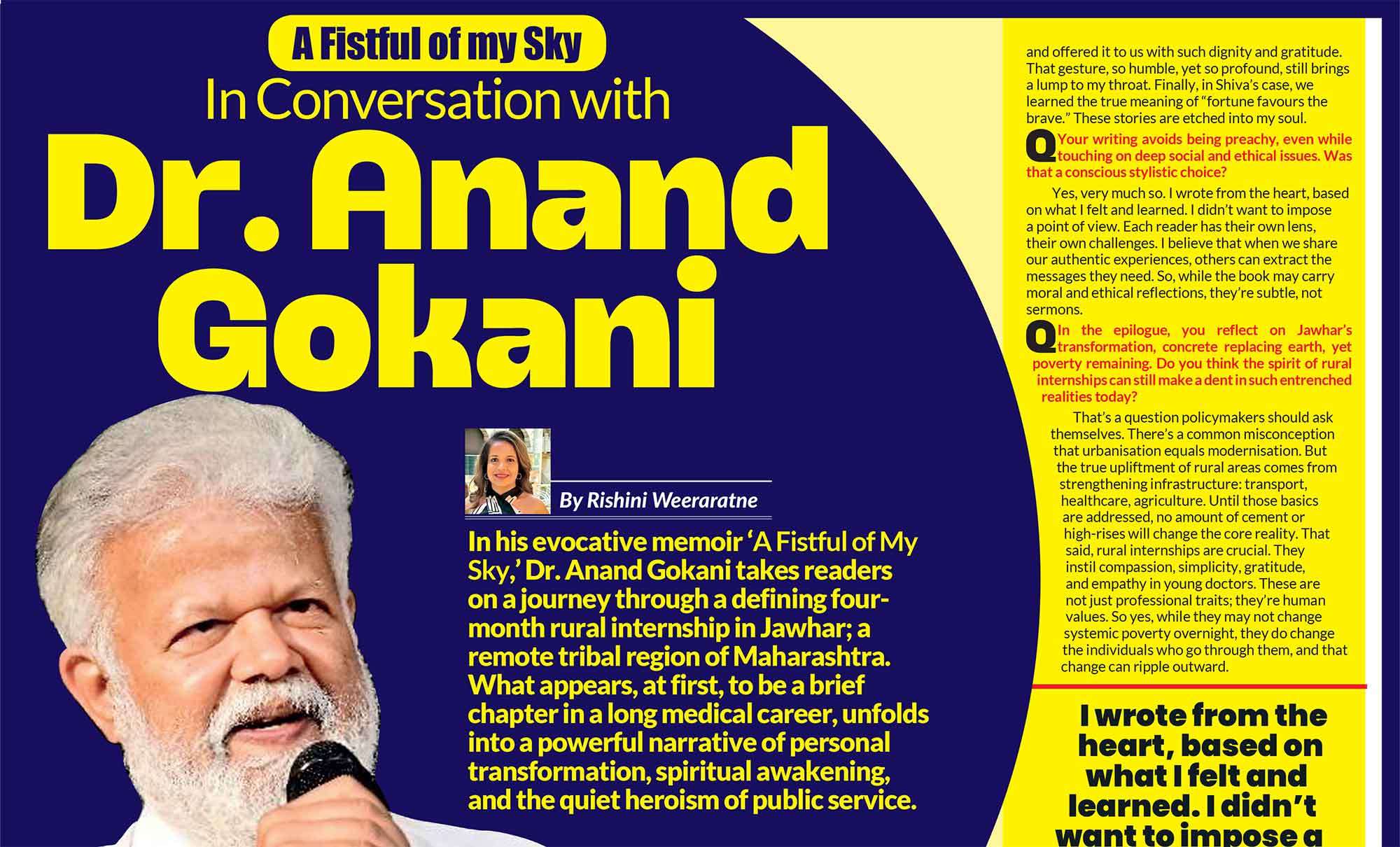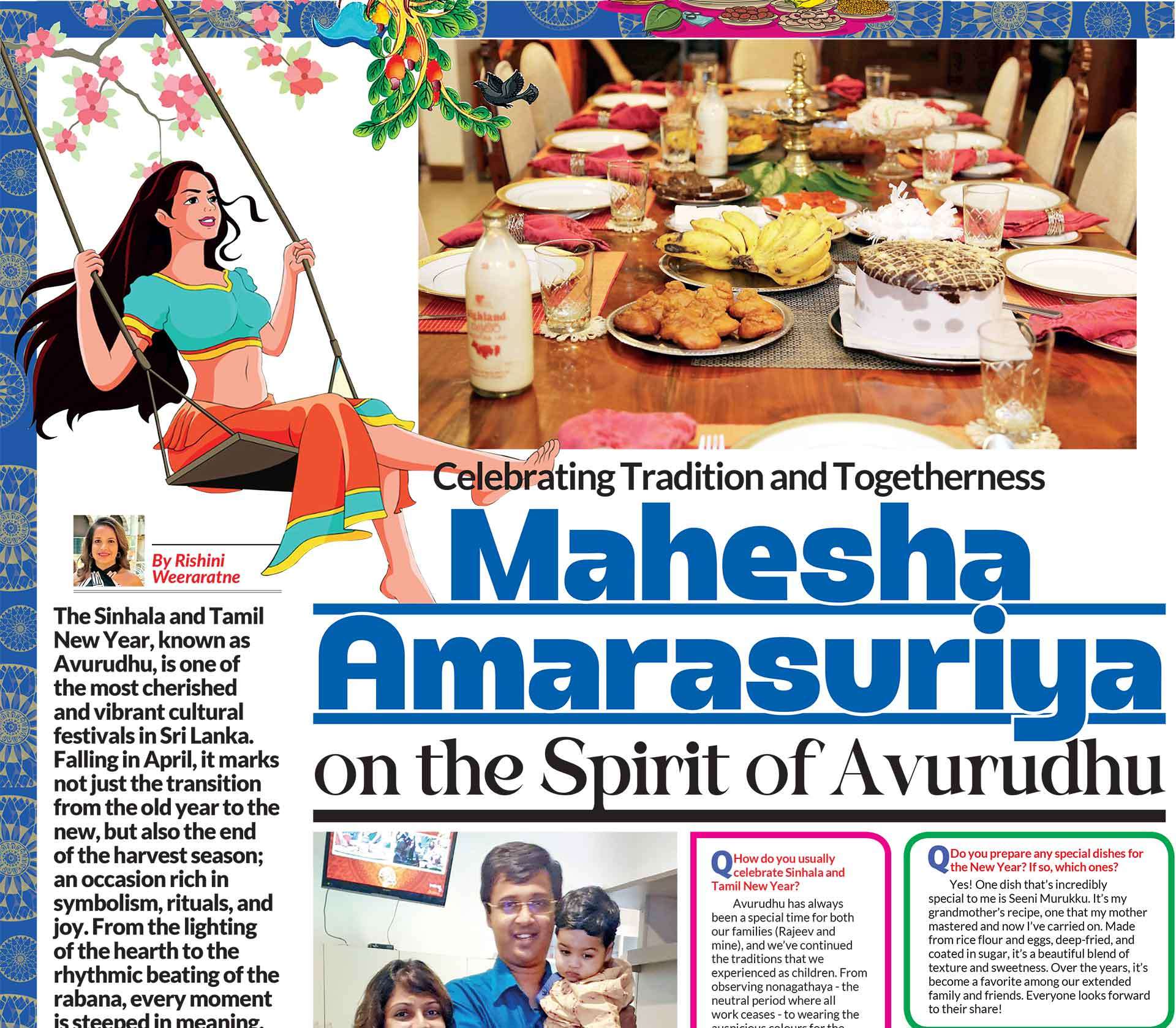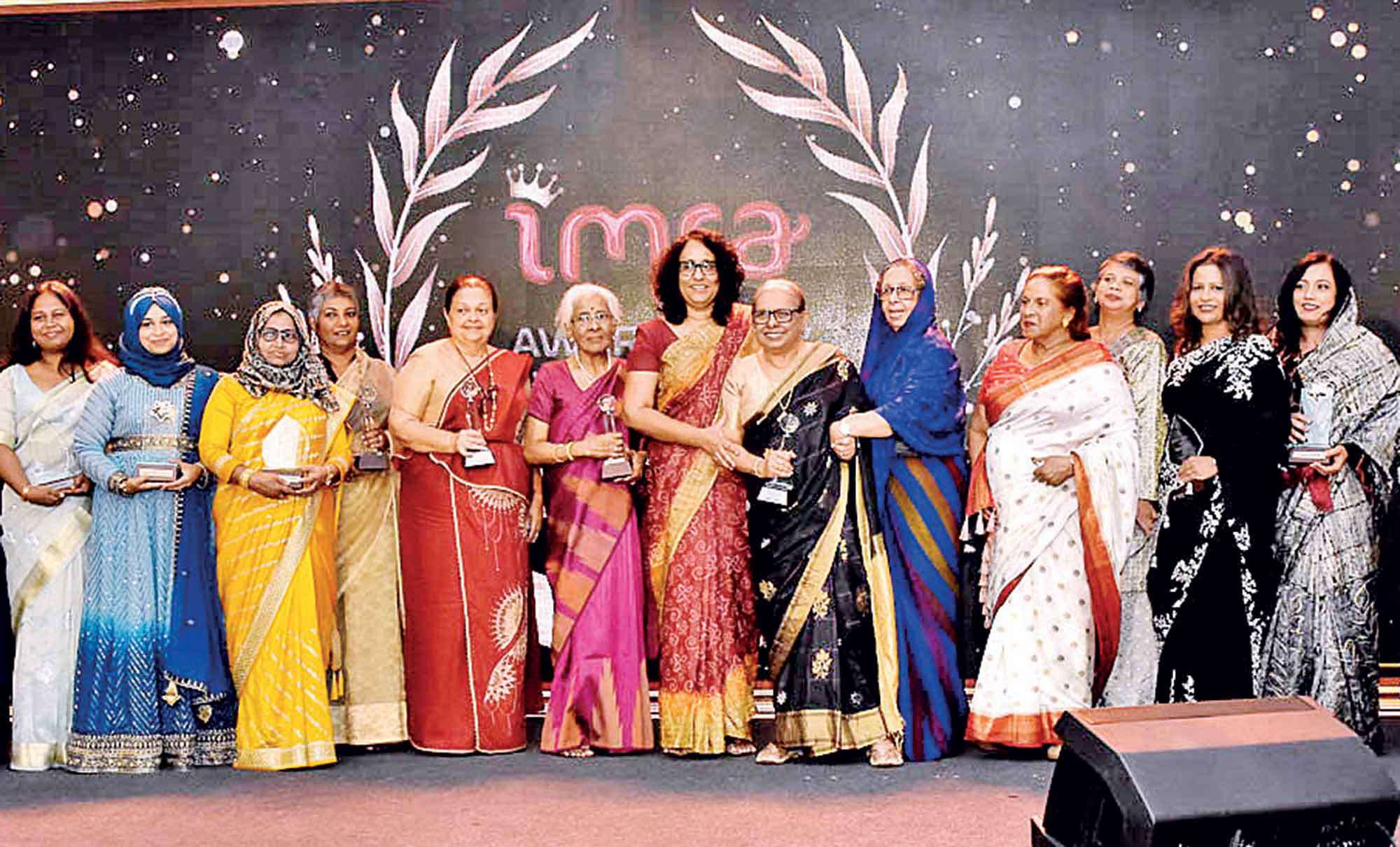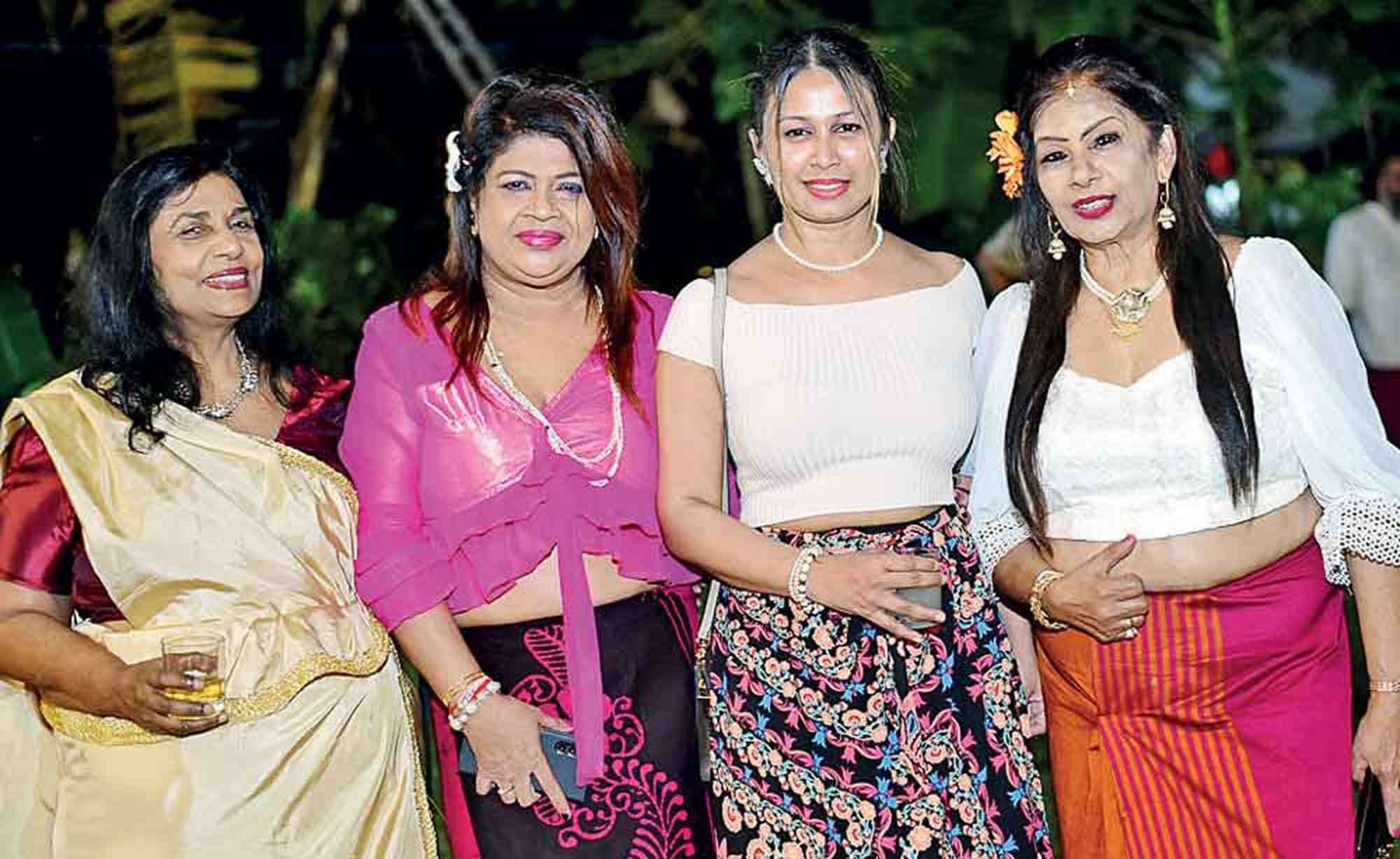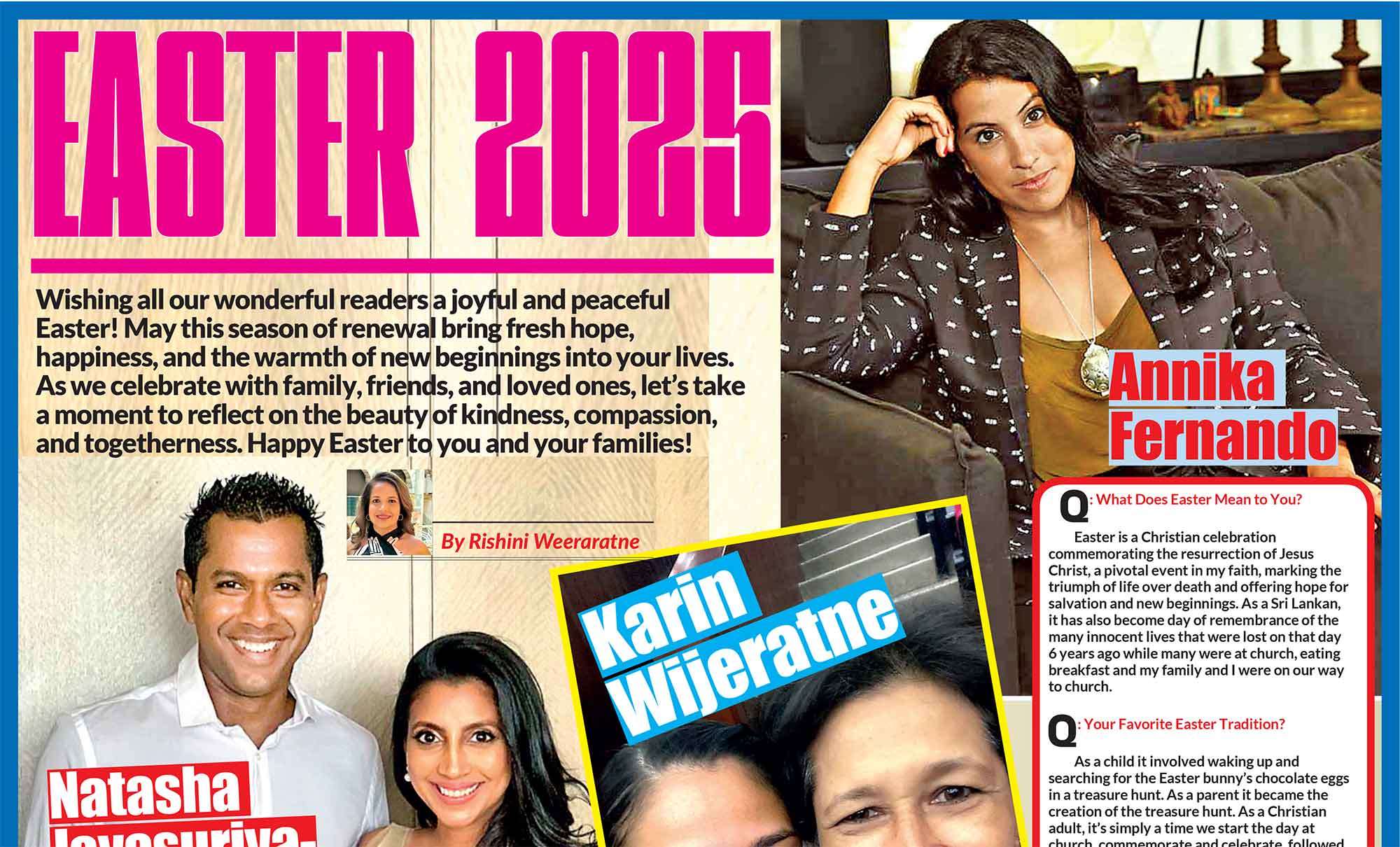
 “One of the most impactful campaigns I’ve worked on was for Saving Face, an Oscar-winning documentary. The film followed a doctor who reconstructed the faces of women who had been disfigured by
“One of the most impactful campaigns I’ve worked on was for Saving Face, an Oscar-winning documentary. The film followed a doctor who reconstructed the faces of women who had been disfigured by
acid attacks.”
Farzana Baduel is a prominent leader in strategic communications, renowned for her expertise in elevating organisations and nations on the global stage. As the 2025 President-elect of the Chartered Institute of Public Relations (CIPR), Founder of the Asian Communication Network (UK), and Founder and CEO of Curzon PR, she has been instrumental in shaping the industry.
My involvement with the Conservative Party as their vice-chair for the Business Forum introduced me to public relations, which led me to co-founding Curzon PR in 2009.
Farzana’s career, spanning over fifteen years, has been a testament to her resilience, adaptability, and dedication to excellence. Transitioning from a background in finance to the world of public relations, she has collaborated with governments, corporations, and non-profits, helping them navigate an ever-changing media landscape. A passionate advocate for diversity in communications, Farzana also champions initiatives that support social mobility. In this exclusive interview, we delve into her career journey, the challenges she’s faced, and her vision for the future of PR. I had the pleasure of meeting Farzana at The Other House Hotel in Kensington; an encounter where time seemed to fly by, and I could have easily spent an entire day engaged in conversation with her.
Q:Please share with us in summary your journey from classroom to boardroom.
I studied Economics and Maths at university but left after my second year without completing my degree. I then set up a tax company, which I ran for ten years. My involvement with the Conservative Party as their vice-chair for the Business Forum introduced me to public relations, which led me to co-founding Curzon PR in 2009. Over the past fifteen years, I have honed my expertise in strategic communications, coinciding with the growing importance of reputation management in boardrooms. Today, I sit on the boards of the Chartered Institute of Public Relations, the Asian Communication Network, Soho Theatre, the British Asian Trust, and, more recently, the HALO Trust.
Q:What inspired you to pursue a career in PR and communications?
My time working in political PR with the Conservative Party was pivotal. It was there that I truly understood how perceptions shape reality and how strategic communications can influence public opinion, win elections, and drive meaningful change. That experience sparked my passion for public relations.
Q:You started in finance before moving to PR - what motivated that transition?
After a decade of running an accounting firm, I felt the need for change but wasn’t sure what direction to take. My interest in politics led me to public relations, a field I was initially unfamiliar with. However, I quickly realised that PR operates at the intersection of advocacy, media, neuroscience, and psychology; each of which is fascinating in its own right. The confluence of these disciplines made PR an irresistible career path for me.
Q:Were there any key moments or mentors that helped shape your journey into the industry?
Working with the not-for-profit sector was a turning point. It was inspiring to see how strategic communications could be used to build a better world. The people in this sector are deeply motivated by purpose, and their passion was both energising and formative for me.
Q:What was the biggest challenge you faced in launching Curzon PR?
Starting a PR agency without prior industry experience was a significant challenge. It took years to establish credibility and build a strong portfolio of case studies. Transitioning from being known for tax and finance to becoming a strategic communications expert required patience, consistency, and diligence. There are no shortcuts to reputation-building, it simply takes time.
Q:As a South Asian woman in the UK business world, did you feel you had to work harder to be taken seriously?
Privilege and the lack of it are complex issues. Some may dismiss me based on my gender, ethnicity, or religion, while others may be drawn to work with me for those very reasons. South Asian women are underrepresented in senior positions in PR, which often leads to people questioning our leadership simply because they are not used to seeing someone like us in these roles. However, representation is changing, and every step forward helps pave the way for others.
Q:How did you secure your first big client, and what did that experience teach you?
My first major client was the Ukrainian government, working on a soft power project and country branding. Interestingly, I secured the contract after losing a previous pitch, one of the decision-makers from that pitch thought we would be a strong fit for the government project. This experience taught me that failure is often a gateway to unexpected opportunities. Losing one pitch led me to something even bigger, reinforcing the importance of resilience and keeping an open mind.
Q:What were some of the biggest hurdles in scaling your business?
One of the toughest challenges was simultaneously setting up offices in New York and Dubai over a decade ago, before remote work and digital collaboration tools were commonplace. It was incredibly difficult to manage operations across different time zones without the technological advancements we now take for granted. Today, remote work has transformed how we scale teams, making global expansion far more accessible.
Q:Did you ever face discrimination or bias when trying to win contracts or expand your business?
Discrimination is difficult to quantify because no one explicitly states that they are excluding you based on bias. However, there have certainly been moments when contracts didn’t materialise without a clear reason. That said, I’ve been fortunate to work with many supportive clients and organisations that have played a crucial role in Curzon PR’s growth. Without them, we wouldn’t have been able to build the expertise we have today.
Q:What strategies helped you establish Curzon PR as an internationally recognised agency?
We apply our own PR strategies to Curzon PR itself, positioning, brand development, third-party endorsements, awards, speaking opportunities, and securing coverage in tier-one media. Additionally, our deep cultural affinity and empathy for diverse markets set us apart, making us a trusted partner for clients across developed, growth, and frontier markets.
Q:What advice would you give to young women who want to enter PR?
I would advise young women to plan their career paths with a long-term perspective, considering different life stages such as marriage (if they choose to), having children, menopause, and navigating ageism in the PR industry. Understanding the best times to work agency-side, typically at the beginning to gain experience across multiple clients, versus in-house, which is often a later-stage move, is crucial. Career planning should be done with eyes wide open, based on what you truly want from your professional journey.
Q:What’s the most memorable campaign you’ve worked on, and why?
One of the most impactful campaigns I’ve worked on was for Saving Face, an Oscar-winning documentary. The film followed a doctor who reconstructed the faces of women who had been disfigured by acid attacks. Beyond winning an Academy Award, the campaign led to legislative changes that increased punishments for perpetrators and secured more funding for victim support foundations. It was a highly emotive and meaningful project, proving the power of PR in driving social change.
Q:How does PR in the UK compare to emerging markets?
Public relations in the UK and emerging markets operate quite differently. Developed markets place a strong emphasis on research, strategy, planning, and measurement, with longer lead times for activation and dedicated budgets for evaluation. In contrast, emerging and frontier markets tend to focus more on execution, often with much shorter lead times and less emphasis on planning and evaluation. Both approaches have their strengths and weaknesses. As a British-Asian professional, I find that I can navigate both working cultures seamlessly and often bridge projects that intersect them.
Q:Who do you look up to for mentorship or inspiration in your career?
I genuinely find inspiration in most people I meet, from Uber drivers to podcast hosts, books I read, and conversations with friends. I believe that everyone has wisdom within them that can be unlocked through active listening. I see sparks of the divine in all of us, and that inspires me daily.
Q:How do you balance running a business with your personal life?
I love my work, so I don’t feel the need for a strict separation between work and personal life. If I need to work on weekends or evenings, I simply do it. However, my family life is very important to me, so I ensure I dedicate time to them. Rather than keeping work and family separate, I integrate them, my family understands my work, they sometimes attend events with me, and many of my colleagues and clients feel like family. For some, compartmentalising works best, but for me, everything is interwoven.
Q:Where do you see yourself and Curzon PR in the next 10 years?
In ten years, I hope to be doing exactly what I’m doing now. I love my job, my team inspires me every day, and we work with incredible clients who are building a better world, balancing profits with people and the planet. I wouldn’t change a thing. However, I also recognise that the only constant in life is change, so I remain open to whatever the future holds.
“One of the most impactful campaigns I’ve worked on was for Saving Face, an Oscar-winning documentary. The film followed a doctor who reconstructed the faces of women who had been disfigured by acid attacks.”
Farzana Baduel is a prominent leader in strategic communications, renowned for her expertise in elevating organisations and nations on the global stage. As the 2025 President-elect of the Chartered Institute of Public Relations (CIPR), Founder of the Asian Communication Network (UK), and Founder and CEO of Curzon PR, she has been instrumental in shaping the industry.
Farzana’s career, spanning over fifteen years, has been a testament to her resilience, adaptability, and dedication to excellence. Transitioning from a background in finance to the world of public relations, she has collaborated with governments, corporations, and non-profits, helping them navigate an ever-changing media landscape. A passionate advocate for diversity in communications, Farzana also champions initiatives that support social mobility. In this exclusive interview, we delve into her career journey, the challenges she’s faced, and her vision for the future of PR. I had the pleasure of meeting Farzana at The Other House Hotel in Kensington; an encounter where time seemed to fly by, and I could have easily spent an entire day engaged in conversation with her.
Q:Please share with us in summary your journey from classroom to boardroom.
I studied Economics and Maths at university but left after my second year without completing my degree. I then set up a tax company, which I ran for ten years. My involvement with the Conservative Party as their vice-chair for the Business Forum introduced me to public relations, which led me to co-founding Curzon PR in 2009. Over the past fifteen years, I have honed my expertise in strategic communications, coinciding with the growing importance of reputation management in boardrooms. Today, I sit on the boards of the Chartered Institute of Public Relations, the Asian Communication Network, Soho Theatre, the British Asian Trust, and, more recently, the HALO Trust.
Q:What inspired you to pursue a career in PR and communications?
My time working in political PR with the Conservative Party was pivotal. It was there that I truly understood how perceptions shape reality and how strategic communications can influence public opinion, win elections, and drive meaningful change. That experience sparked my passion for public relations.
Q:You started in finance before moving to PR - what motivated that transition?
After a decade of running an accounting firm, I felt the need for change but wasn’t sure what direction to take. My interest in politics led me to public relations, a field I was initially unfamiliar with. However, I quickly realised that PR operates at the intersection of advocacy, media, neuroscience, and psychology; each of which is fascinating in its own right. The confluence of these disciplines made PR an irresistible career path for me.
Q:Were there any key moments or mentors that helped shape your journey into the industry?
Working with the not-for-profit sector was a turning point. It was inspiring to see how strategic communications could be used to build a better world. The people in this sector are deeply motivated by purpose, and their passion was both energising and formative for me.
Q:What was the biggest challenge you faced in launching Curzon PR?
Starting a PR agency without prior industry experience was a significant challenge. It took years to establish credibility and build a strong portfolio of case studies. Transitioning from being known for tax and finance to becoming a strategic communications expert required patience, consistency, and diligence. There are no shortcuts to reputation-building, it simply takes time.
Q:As a South Asian woman in the UK business world, did you feel you had to work harder to be taken seriously?
Privilege and the lack of it are complex issues. Some may dismiss me based on my gender, ethnicity, or religion, while others may be drawn to work with me for those very reasons. South Asian women are underrepresented in senior positions in PR, which often leads to people questioning our leadership simply because they are not used to seeing someone like us in these roles. However, representation is changing, and every step forward helps pave the way for others.
Q:How did you secure your first big client, and what did that experience teach you?
My first major client was the Ukrainian government, working on a soft power project and country branding. Interestingly, I secured the contract after losing a previous pitch, one of the decision-makers from that pitch thought we would be a strong fit for the government project. This experience taught me that failure is often a gateway to unexpected opportunities. Losing one pitch led me to something even bigger, reinforcing the importance of resilience and keeping an open mind.
Q:What were some of the biggest hurdles in scaling your business?
One of the toughest challenges was simultaneously setting up offices in New York and Dubai over a decade ago, before remote work and digital collaboration tools were commonplace. It was incredibly difficult to manage operations across different time zones without the technological advancements we now take for granted. Today, remote work has transformed how we scale teams, making global expansion far more accessible.
Q:Did you ever face discrimination or bias when trying to win contracts or expand your business?
Discrimination is difficult to quantify because no one explicitly states that they are excluding you based on bias. However, there have certainly been moments when contracts didn’t materialise without a clear reason. That said, I’ve been fortunate to work with many supportive clients and organisations that have played a crucial role in Curzon PR’s growth. Without them, we wouldn’t have been able to build the expertise we have today.
Q:What strategies helped you establish Curzon PR as an internationally recognised agency?
We apply our own PR strategies to Curzon PR itself, positioning, brand development, third-party endorsements, awards, speaking opportunities, and securing coverage in tier-one media. Additionally, our deep cultural affinity and empathy for diverse markets set us apart, making us a trusted partner for clients across developed, growth, and frontier markets.
Q:What advice would you give to young women who want to enter PR?
I would advise young women to plan their career paths with a long-term perspective, considering different life stages such as marriage (if they choose to), having children, menopause, and navigating ageism in the PR industry. Understanding the best times to work agency-side, typically at the beginning to gain experience across multiple clients, versus in-house, which is often a later-stage move, is crucial. Career planning should be done with eyes wide open, based on what you truly want from your professional journey.
Q:What’s the most memorable campaign you’ve worked on, and why?
One of the most impactful campaigns I’ve worked on was for Saving Face, an Oscar-winning documentary. The film followed a doctor who reconstructed the faces of women who had been disfigured by acid attacks. Beyond winning an Academy Award, the campaign led to legislative changes that increased punishments for perpetrators and secured more funding for victim support foundations. It was a highly emotive and meaningful project, proving the power of PR in driving social change.
QHow does PR in the UK compare to emerging markets?
Public relations in the UK and emerging markets operate quite differently. Developed markets place a strong emphasis on research, strategy, planning, and measurement, with longer lead times for activation and dedicated budgets for evaluation. In contrast, emerging and frontier markets tend to focus more on execution, often with much shorter lead times and less emphasis on planning and evaluation. Both approaches have their strengths and weaknesses. As a British-Asian professional, I find that I can navigate both working cultures seamlessly and often bridge projects that intersect them.
QWho do you look up to for mentorship or inspiration in your career?
I genuinely find inspiration in most people I meet, from Uber drivers to podcast hosts, books I read, and conversations with friends. I believe that everyone has wisdom within them that can be unlocked through active listening. I see sparks of the divine in all of us, and that inspires me daily.
QHow do you balance running a business with your personal life?
I love my work, so I don’t feel the need for a strict separation between work and personal life. If I need to work on weekends or evenings, I simply do it. However, my family life is very important to me, so I ensure I dedicate time to them. Rather than keeping work and family separate, I integrate them, my family understands my work, they sometimes attend events with me, and many of my colleagues and clients feel like family. For some, compartmentalising works best, but for me, everything is interwoven.
QWhere do you see yourself and Curzon PR in the next 10 years?
In ten years, I hope to be doing exactly what I’m doing now. I love my job, my team inspires me every day, and we work with incredible clients who are building a better world, balancing profits with people and the planet. I wouldn’t change a thing. However, I also recognise that the only constant in life is change, so I remain open to whatever the future holds.


